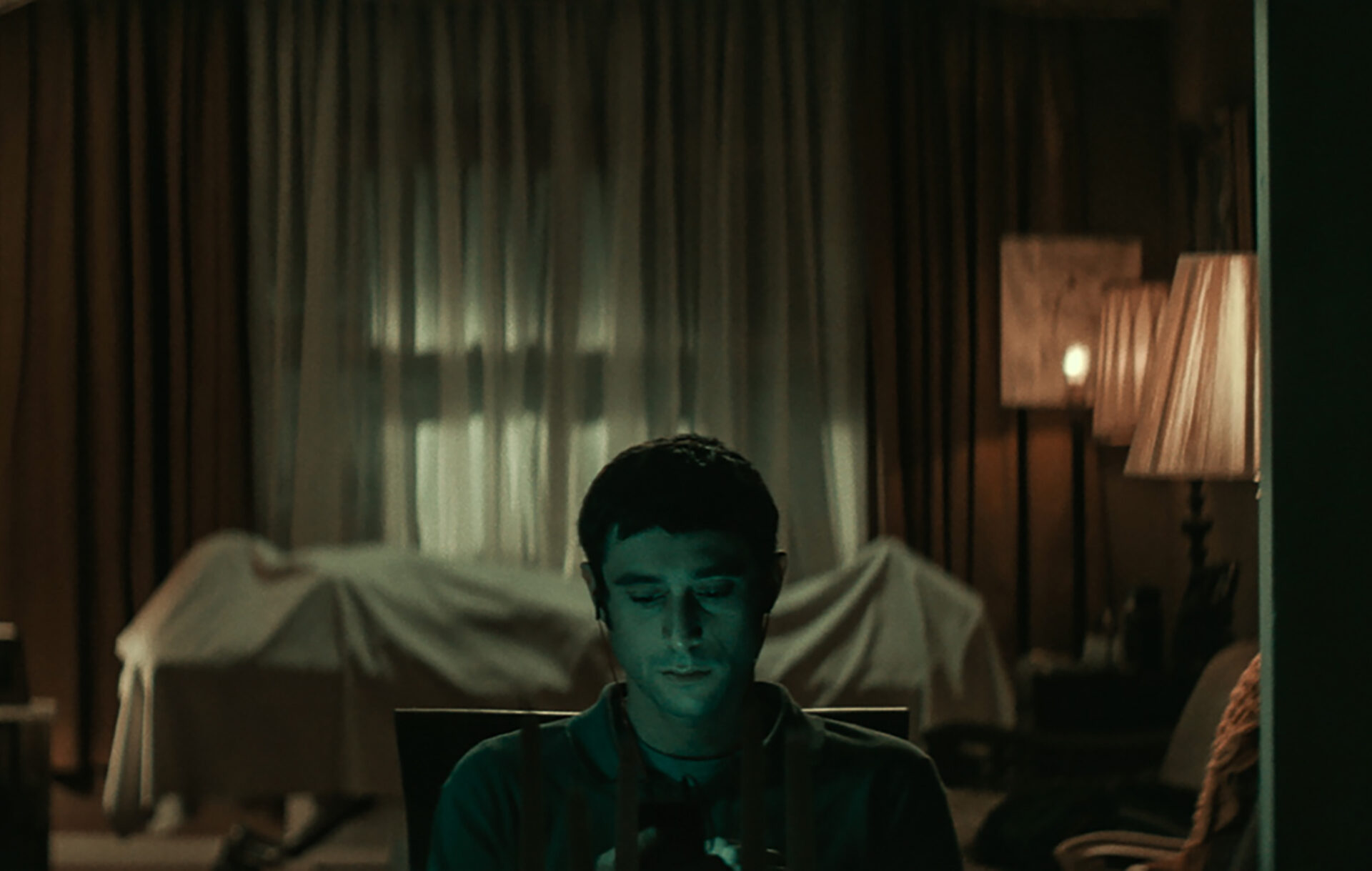Blending grief-stricken horror with a crisis of faith, The Vigil discovers new ground in well-worn territory.
Keith Thomas has crafted a horror film that will shake loose all the guilt and regret living in your soul. His debut feature, The Vigil, demands we forgive ourselves for being human while simultaneously preying on the universal fear of never doing or being enough. It’s precisely the kind of film we need right now.
Yakov (Dave Davis) recently departed his orthodox Jewish community. While struggling to adjust to the outside world, a friend from his past reaches out. His friend needs a shomer to watch over a recently deceased man’s body until the mortuary can remove it from his home. Lured by the opportunity to make some desperately needed cash with a single night of work, Yakov agrees to the task but soon finds himself facing a malevolent entity.
For more horror film coverage, check out our review of the latest Wrong Turn!
Grief monsters are increasingly present in modern horror. From The Babadook in 2014 to last year’s Come Play, stories about the way our past haunts our present are ripe fodder for genre films. What separates The Vigil is its embrace of the Jewish faith. Shomers do more than sit with the deceased. They are there to pray over the body, reciting psalms throughout the night. Their community trusts them to care for the remains of those who have passed. Yakov is technically an outsider when the story begins, but his knowledge of Jewish faith ultimately proves to be his saving grace.
A large part of the film’s success is owed to DP Zach Kuperstein’s work, which transforms an otherwise unassuming house on a New York City street into a home of terror through darkness and shadows. Even before the entity is recognized, Kuperstein’s visual craftsmanship creates an ambiance of terror that keeps viewers peering into corners, anxiously awaiting the next scare. His work, coupled with the strong performances of Davis and Lynn Cohen (as a widow), help make every thump and creek in the old home a hair-raising occasion.
But The Vigil is more than a scare-fest. The film explores self-love and sacrifice in a manner that will resonate deeply with anyone struck by survivor’s guilt. Thomas’ script delves into the power of love, the weight of regret, and the pains of existence that, at times, are likely to make viewers more uncomfortable than the film’s monster. He understands that the only thing worse than battling creatures of unknown origins is confronting the demons within ourselves, and he plays with that idea to great dramatic effect.
The combination of repressed personal traumas and Yakov’s recent crisis of faith allows The Vigil to offer a world that feels both new and familiar. The film takes no breaks or asides to educate the unfamiliar, even when elements of the faith unknown to general audiences are present on the screen. Thomas’ devotion to unnerving viewers without satirizing or exploiting the faith at the heart of his premise is the developing filmmaker’s most significant accomplishment. There are moments in this film that no other storyteller has dared to deliver, and that alone will keep genre fans coming back for years to come.













